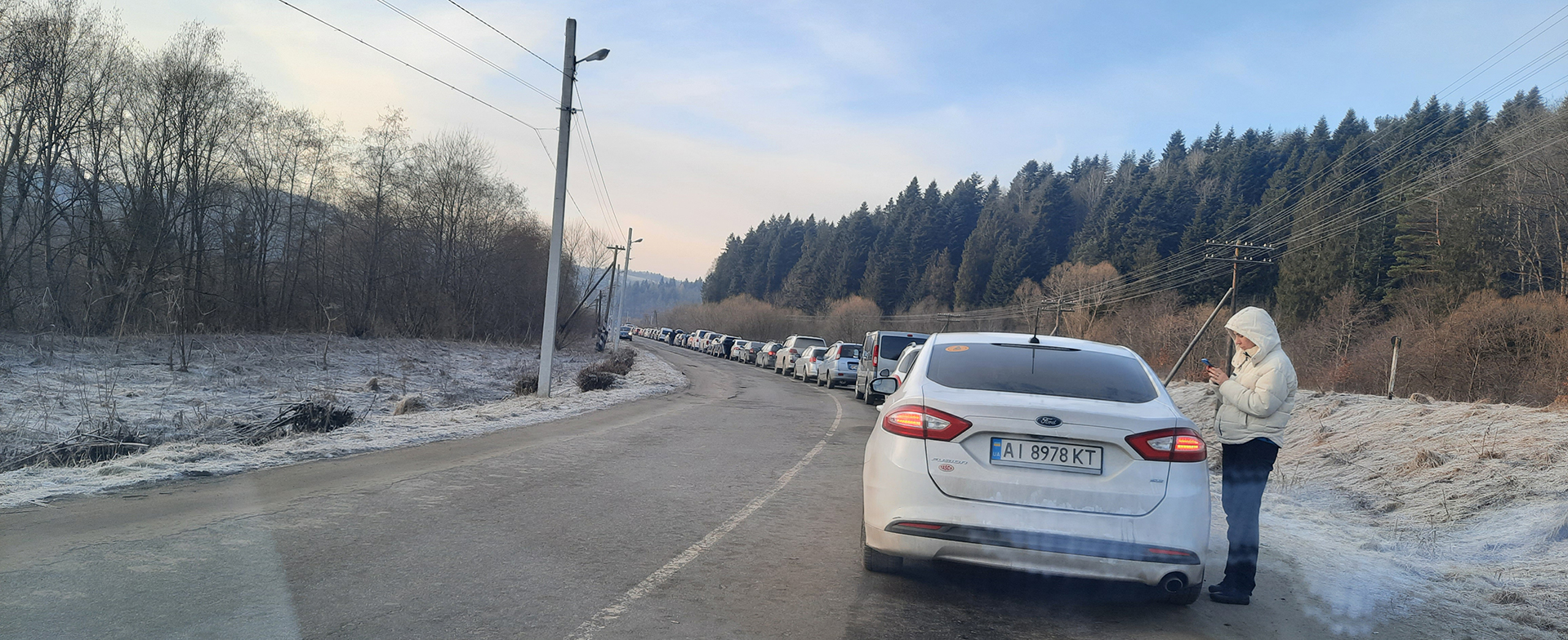
‘We Left Everything Because Life was More Precious,’ says Visiting Scholar from Ukraine
November 13, 2023
Since fleeing Kyiv at the start of the Russian invasion, Tetiana Hranchak has found community and continued her work in the Maxwell School.
On Feb. 24, 2022, Tetiana Hranchak awoke to the sound of explosions near her home in Kyiv, Ukraine. She expected Russia’s invasion and knew once it happened that she would leave her home country for the United States. Given her activism and scholarly research, she feared for her safety.

Hranchak and her husband, Yurii Gryga, packed their most basic needs—clothing and personal care items—and a few of their most precious treasures into a duffel bag and two backpacks. They traveled to the western border and, in an arduous, two-week journey, traveled to Hungary and Iceland before landing safely in Chicago.
In addition to their family and friends, the couple left behind a recently remodeled home they adored. “We left everything because life was more precious,” said Hranchak.
This fall, Hranchak joined the Maxwell School as a visiting assistant teaching professor. Her stay is made possible by Syracuse University’s participation in the Scholars at Risk Network, a nonprofit international program that provides academic visiting positions to threatened scholars. The University joined the program following the Russian invasion; Hranchak is the first participant.
“Given our profile as a university and a school committed to global engagement, her presence provides a unique opportunity for our students to learn about a country that has dominated international news for the past two years,” said Brian Taylor, professor of political science and director of the Moynihan Institute of Global Affairs where Hranchak’s position is based.
He added, “She has brought to life the history, culture and traditions of Ukraine, shared her expertise in the politics of memory and candidly shared her experiences since the invasion. Faculty and students are learning from her and are inspired by her passion for Ukraine. We are grateful to her, and to University Chancellor Kent Syverud and Vice Chancellor and Provost Gretchen Ritter for their enthusiastic support for our participation in the Scholars at Risk Network.”
Hranchak spent two decades as a researcher at the VI Vernadsky National Library of Ukraine, and she has published more than 90 scholarly works including the 2012 monograph “Library and Political Communication.”

At Moynihan, Hranchak is continuing her research on media literacy, countering misinformation and propaganda and the role of libraries in the politics of memory. The latter is of particular interest and what made her feel vulnerable amid Russia’s invasion; the “politics of memory” refers to political influence over organizations, as well as the preservation and transformation of collective social memory.
Hranchak also engages with faculty and students on issues related to Ukraine. She launched the Ukrainian Culture and Conversation Table—a place where students can learn more about Ukraine in an informal setting, and this spring she will teach a course focused on her country’s history and culture. She hopes to spread understanding and appreciation for her home country as more than the target of Russia’s siege.
This is Hranchak’s second appointment since arriving in the U.S. She was previously supported by the Indiana University-Ukraine Nonresidential Scholars Program. Like the Scholars at Risk Network, it supported her research and provided a teaching opportunity—she developed and taught a course this past summer, “Libraries and the Politics of Memory,” that has been replicated elsewhere, including in Ukraine.
The Syracuse Scholars at Risk opportunity came at the right time, just as the Indiana position was coming to an end, said Hranchak. “I’m extremely grateful that the University connected with this organization and decided to host someone who needs help—that person was me,” she said.
Nearly two years since Hranchak’s world was upended, the tears still come easy. Sometimes, they arise from her despair for the continued destruction and lost lives in Ukraine. She has also cried in gratitude for the many acts of kindness and generosity she and her husband have encountered in the U.S. Their first home, in Toledo, Ohio, for instance, was offered rent free for months.
Hranchak and Gryga have helped community groups gather donations to support refugees and Ukraine. The work has brought a sense of empowerment amid the continued uncertainty and worry for loved ones back home, who include their two grown sons.
The assistant teaching position ends this May. Hranchak isn’t sure yet what’s next, but she and Gryga have become adept at embracing each day as it comes. “We try to value what we have,” she said. “I find my sense of stability in people.”
By Jessica Youngman
Published in the Fall 2023 issue of the Maxwell Perspective
Related News
Commentary

Mar 20, 2025
Commentary

Mar 19, 2025
Commentary

Mar 11, 2025
